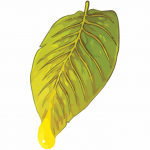Medicinal cannabis is back in the news again after a planned trial to grow it in Norfolk Island was blocked by the federal government last week. The media is ablaze with political rumblings and tales of public woe, but what does science have to say on the subject?
Well, an article just published in the prestigious journal JAMA Internal Medicine provocatively suggests that US states with medical cannabis laws have dramatically reduced opioid mortality rates.
So the science is clearly every bit as alive and kicking as the political bluster, but rests on firmer, less emotive grounds. This is what we know: somewhere in that much-incinerated plant lies valuable medicine – perhaps a treatment for cancer or an antidote to obesity.
In fact, cannabis science is one of the fastest moving frontiers in pharmacology and has accelerated by the realization that we’re all already marinated in cannabis-like molecules (endocannabinoids) and their receptors. Endocannabinoids help regulate many physiological processes: mood, memory, appetite, pain, immune function, metabolism and bone growth to name a few (there are even cannabinoid receptors in sperm).
Cannabis contains more than 120 different cannabinoid molecules. But, as far as we know, only one gets you stoned: THC. The plant contains a cornucopia of non-psychoactive, non-intoxicating THC cousins with emerging medicinal potential.
Cannabidiol (CBD) is perhaps the most interesting of the lot: a non-intoxicating cannabinoid that is present in variable amounts in different cannabis samples and moderates the actions of THC in the brain. Smoking high-cannabidiol weed appears less likely to cause psychosis, paranoia and cognitive impairment than low-CBD varieties.
Cannabidiol given alone has antipsychotic effects as efficacious as standard anti-psychotic drugs but with fewer side effects. It also has remarkable effects in treating intractable childhood epilepsy that cannot be treated with conventional anti-convulsants.

